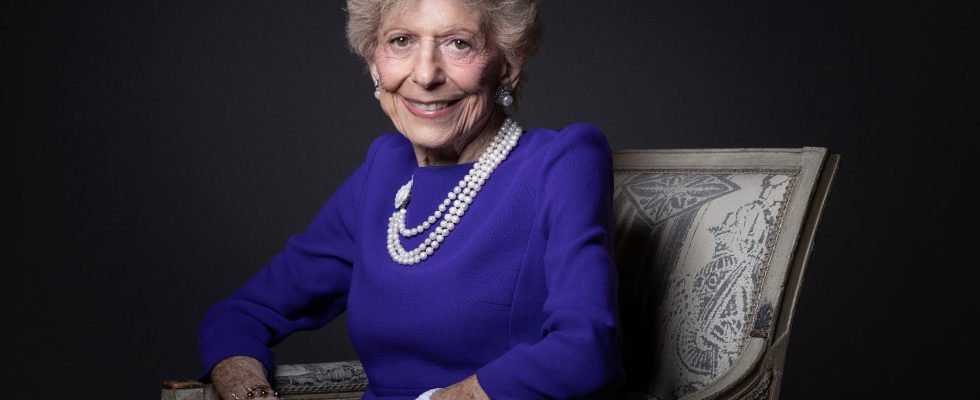“She passed away peacefully surrounded by her family.” Hélène Carrère d’Encausse, historian specializing in Russia, first woman at the head of the French Academy, died this Saturday August 5 in Paris at the age of 94, her children announced to AFP in a press release.
Permanent secretary of the prestigious institution since 1999, she had indicated that it should be called “Madame perpetual secretary”, without feminizing the function. Because, according to her, “there has been only one perpetual Secretary for three and a half centuries. It is this idea of continuity that must prevail. It is a line that continues”.
Of Austrian, German and Italian roots, she counted among her ancestors great servants of the Russian Empire. She said “to be French from head to toe: a real case of perfect integration”. From her origins, she had preserved her Orthodox faith. Born in Paris on July 6, 1929, she was the daughter of an Italian and a Georgian philosopher who emigrated to France, Georges Zourabichvili (who would later be assassinated). She acquired French nationality in 1950 and married, two years later, Louis Carrère, dit Carrère d’Encausse, an insurer with whom she had three children: the writer Emmanuel (author of “Limonov” or “Yoga”. ), Nathalie, lawyer, and Marina, doctor and media consultant.
Rediscover “a collective historical memory”
A brilliant student, Hélène obtained a diploma from the Paris Institute of Political Studies and a doctorate in letters. She will teach history at the Sorbonne then at Sciences-Po, as well as at the College of Europe in Bruges. Recognized in the circle of Kremlinologists and regularly consulted by the journalistic world, she made a sensational entry into publishing in 1978 with “L’Empire exploded”. She predicted, before many others, the breakup of the USSR faced with the problem of minorities.
Based on tons of archives, she works to find “a collective historical memory, to seek the internal logic of events”. Biographer of Lenin, Stalin, Catherine II or Alexander II, she notably published “The Big Brother” (1983), “Neither Peace nor War” (1986), “The Great Challenge” (1987), “The Russian Misfortune” ( 1988), “The Glory of Nations or the end of the Soviet Empire” (1991), “Russia, the failed transition” (2005) or “General de Gaulle and Russia” (2017).
Visiting professor at many foreign universities, especially in North America and Japan, she was decorated in 1998 by Russian President Boris Yeltsin with the Order of Friendship between Peoples “for his study of Russia”. In 1997, she received in France the Prix des Ambassadeurs for her work “Nicolas II: the interrupted transition”.
The prestigious Spanish Princess of Asturias prize for social sciences was also awarded to her in 2023. A member in 1986-87 of the Commission of Elders for the reform of the Nationality Code, in 1992 she was an advisor to the European Bank for the Reconstruction and Development (EBRD), thus participating in the development of a policy of assistance for the democratization of former communist states.
After having led, in 1992, the National Committee for the “yes” to the referendum on the Maastricht Treaty, she appeared, during the European elections of 1994, in second position on the list of the right-wing majority UDF-RPR, behind Dominique Baudis . Elected to the European Parliament, she is vice-president of the Foreign Affairs and Defense Committee.
Since 1999, she has had the opportunity to express her opposition to the feminization of titles and functions for women in the French language, then, years later, to inclusive writing, while striving to “replenish the Academy” as great novelists.
